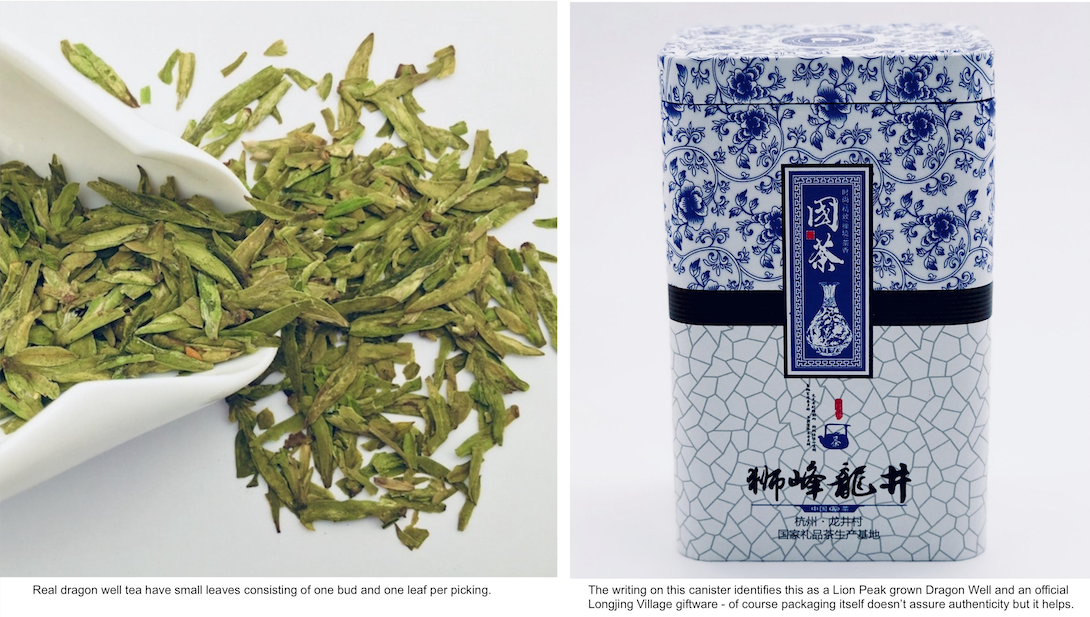
Dragon Well - The Real Ones
A real Lion Peak Dragon Well tea is near impossible to guarantee unless you procure direct from the hands that grow it.
Further, even though Lion Peak is considered to pertain best terroir for Dragon Well production, many of the farms there have now been bought by large companies. Naturally without proprietary interest, the farmers’ incentive to produce quality under this arrangement is minmised. So best to find the independent owner-growers - case in point our source, the Wang Wen Ying family.
Case Study - the Wangs
The Wangs already in their 80s, are third generation growers. During the Communist revolution, land was taken by the government for reallocation. Each rcognised farmer on Lion Peak was given one acre of land to grow tea. Since there were eight farmers amongst the family, the Wangs were given eight acres.
There were only six farms on Mountain Peak that were officially recognized and thus allowed to grow tea at the time. The Wangs were Team No.4, and they were given an official plaque to identify them as such, a momento they were only too proud to show us.
Since de-centralisation, many of the neighbouring farms and land were then sold by residents to large operators. The large operators would then hire back the previous owners to make what the Wangs express with some disdain “chengbao” (承包) tea or, “contract” tea. Faster churn, pay-cheque tea, not a lot of love.
These days with the hike in land value, if the Wangs decide to sell, they would make a fortune but they’re sticking to their roots. For the love of tradition and their way of life, the Wangs continue to produce uncompromised quality with complete autonomy.
What it Takes
Proper Dragon Well production is extremely labour intensive, everything is done by hand. For two months during spring, farm hands pick the tea, each picking comprise of a bud and one leaf. A total harvest on 8 acres only produces 200kg of tea. After the tea is picked, the leaves are fired by highly skilled and experienced women, who are said to have the right temperament and ability in order to hand press the leaves against hot woks with the right amount of pressure and timing. Hand-firing takes five hours for every “jin” (500g).
Having such a low yield per year and requiring the labour of so many individuals is part of the reason why real dragon well is priced the way it is. But even if you do the maths, you will note that this provides only a modest income to be shared amongst a team of 10-12 people for an entire year. Not to mention the value of dedicating a stringent quality discipline which allows only spring harvest, hand-picked bud and one only.
Taste
Needless to say the effort behind producing real dragon well is reflected in the taste. Having about 50% buds, there should be a lingering sweet after-breath akin to a white tea not otherwise associated with green teas. The front of the palate will taste young corn and unroasted tree nuts. The hint of a “green” component in this can be likened to fresh kangkung.
